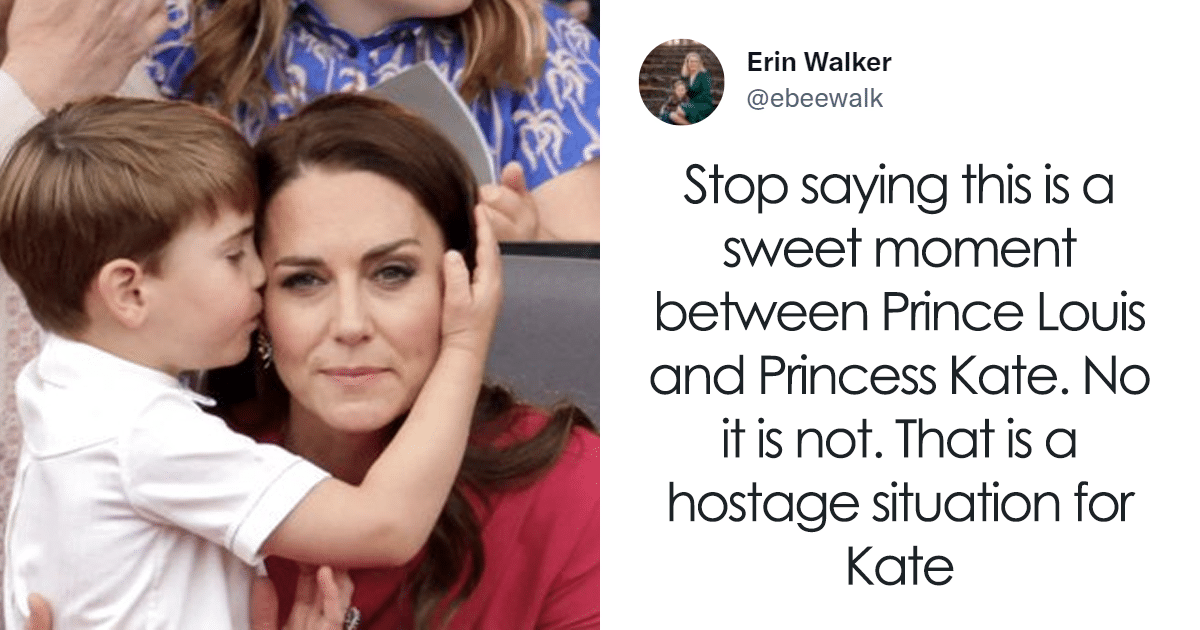On the 6th of February this year, Her Majesty The Queen became the first British Monarch to enter 70 years of service to the people of the United Kingdom.
There have been many events and initiatives throughout the year, but they culminated in a four-day UK bank holiday weekend from the 2nd to the 5th of June.
The Queen’s great-grandson, Prince Louis, was the star of the show. The 4-year-old won the hearts of the public with his antics. He amused onlookers by pulling a wide array of exaggerated expressions, clenching his fists, and jumping up and down in his seat.
Parents from all over the world have expressed their support for his mother.
1.
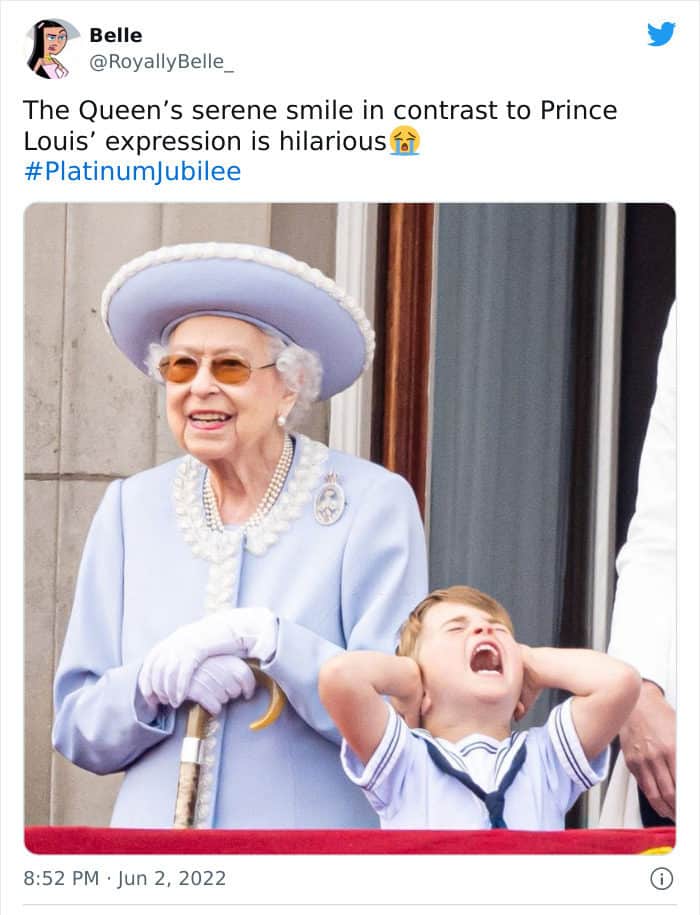
2.
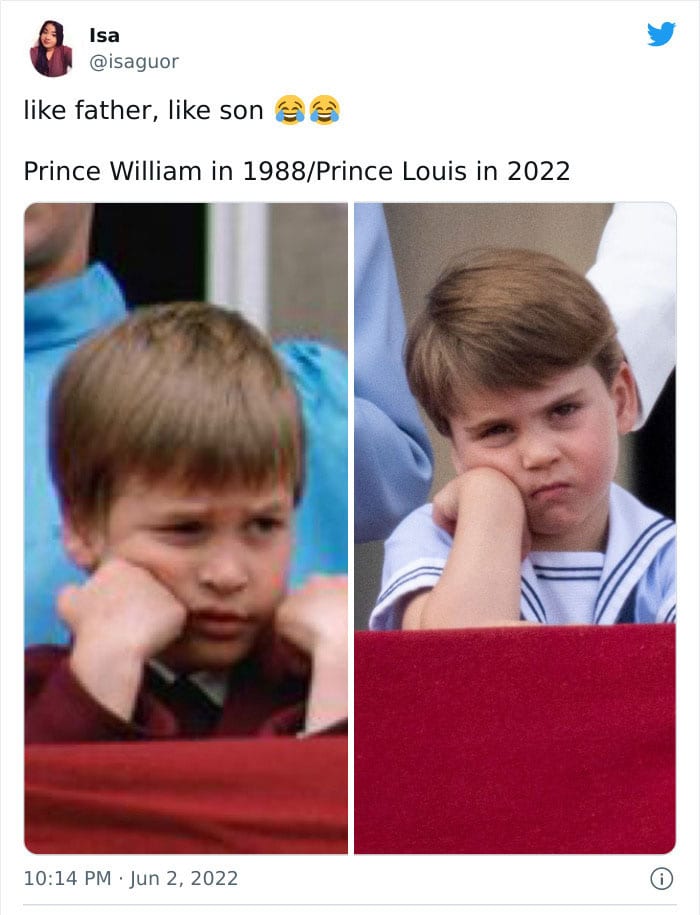
During the Jubilee flypast on June 2nd, everything started on the balcony at Buckingham Palace. Prince Louis covered his ears and appeared to start screaming.
The young royal was seen sticking his tongue out and holding his hand up to his mother during the Platinum Pageant. He was covered in his eyes in the front row of the Royal Box.
Louis was going hard for most of the celebration according to some accounts. Chris Jackson said he had a hard time taking pictures of the boy during the festivities.
3.
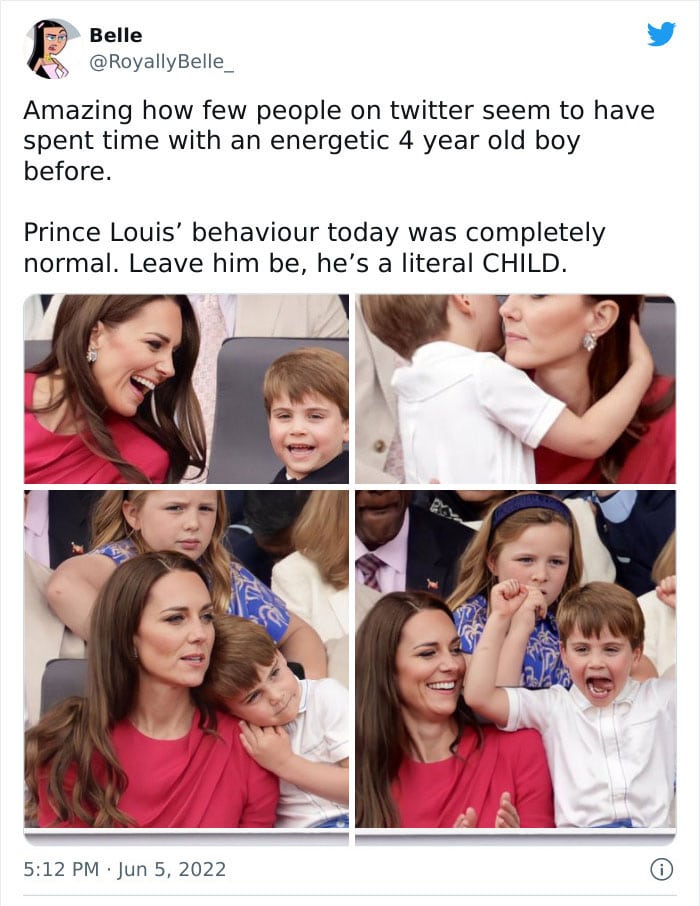
4.
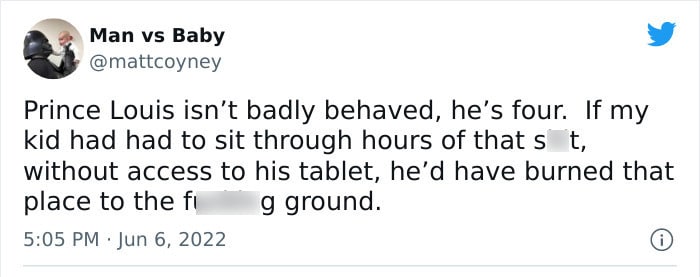
5.
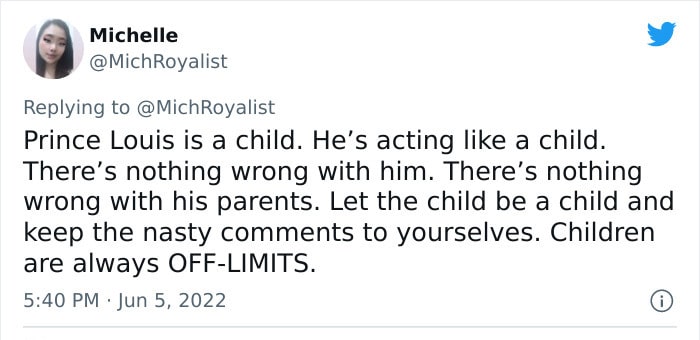
Jackson, who has photographed the British royal family for over two decades, admitted that it was difficult to shoot Louis because he was too busy.
“I was struggling to keep the camera still as I was chuckling whilst taking these photos, what a character,” the photographer said according to the Hello! Magazine reported.
The four-day party began with a flyover on June 2nd at Buckingham Palace, where Louis was spotted covering his ears and making funny faces.
6.
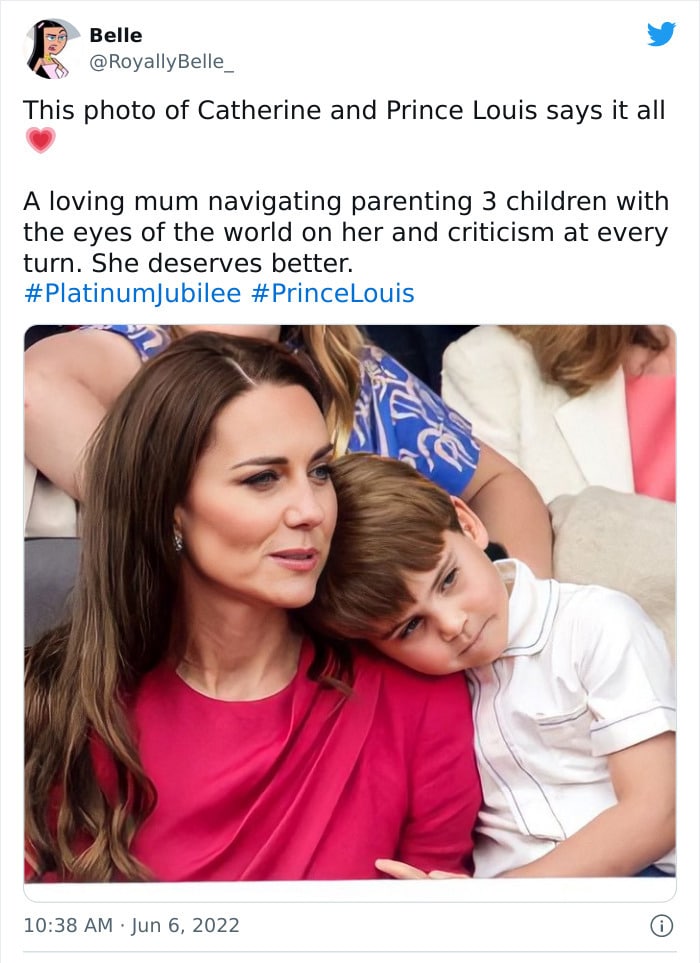
7.
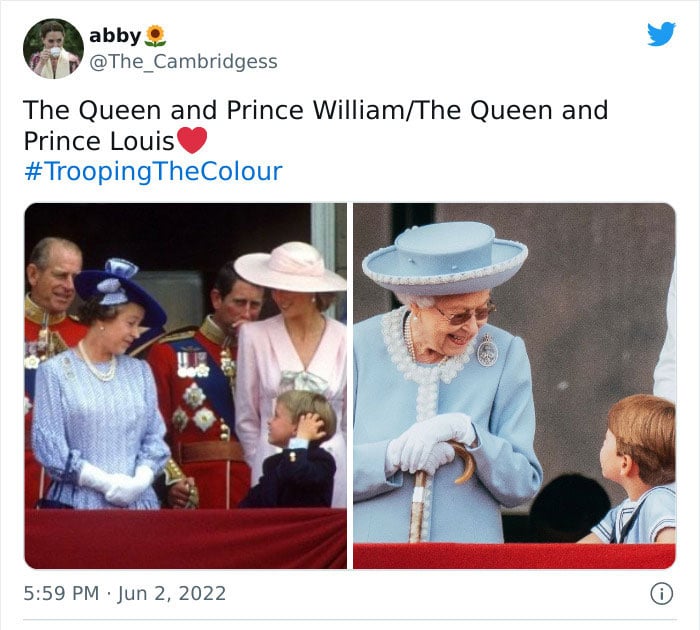
8.
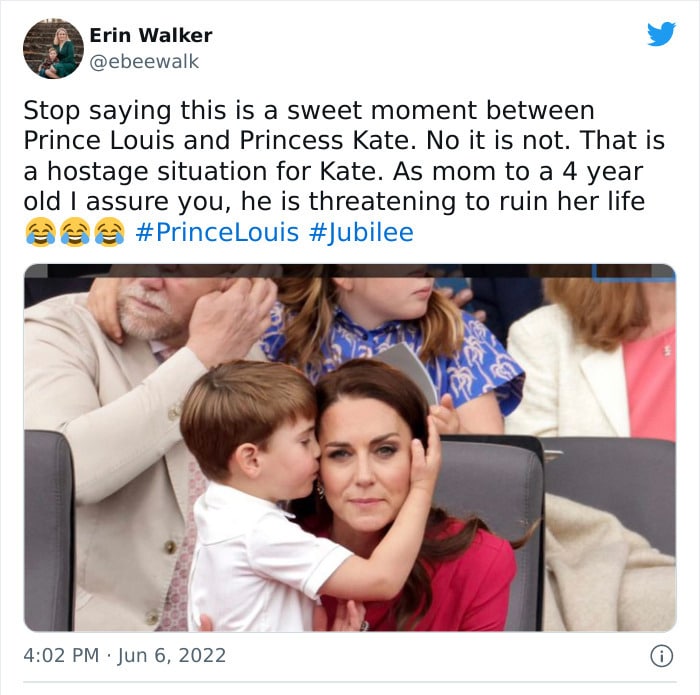
9.

The little prince’s behavior made some people ask the question. Is it normal for a 4-year-old to act like a spoiled brat? Kaitlin Soulé, an author of A Little Less of a Hot Mess: The Modern Mom’s Guide to Growth & Evolution who is a licensed family and marriage therapist in California told The New York Post that Louis’ mannerisms were “completely normal and developmentally appropriate.”
“With children around his age, part of their developmental task is to push boundaries and figure out how to be in the world,” Soulé explained. “They are really learning from us and they are mimicking our behavior, and I am sure he’s been shushed plenty of times. They truly learn from our behavior.”
10.

11.
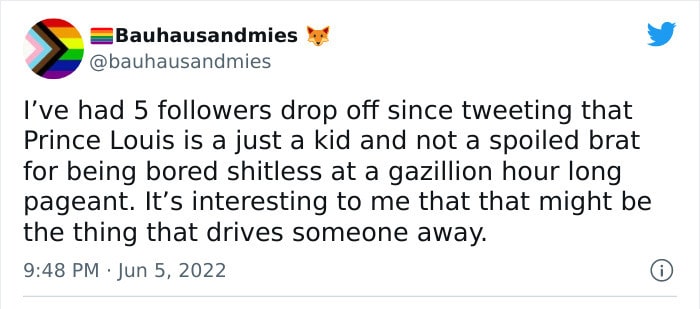
12.
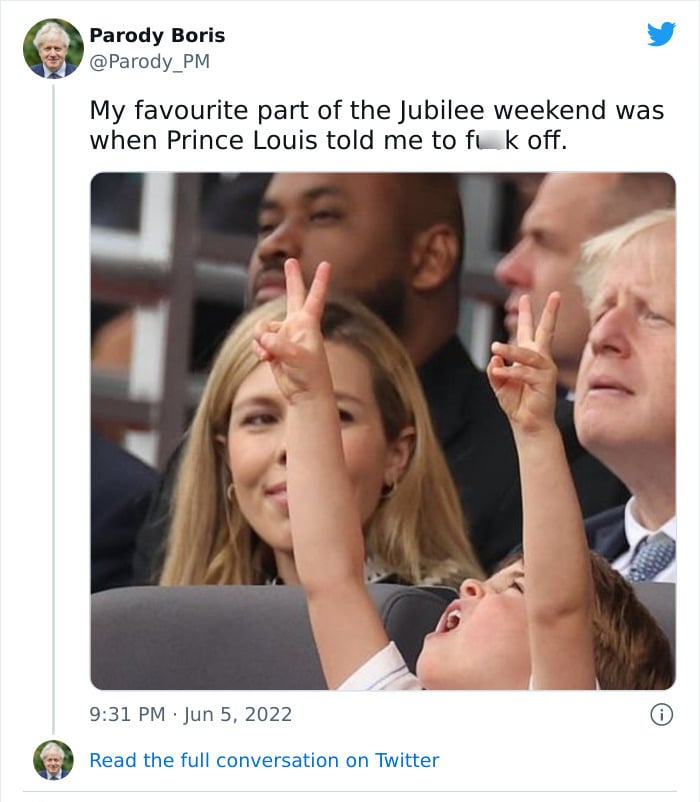
13.

Most preschoolers have gained a bit of control over their tempers, but they still don’t have enough impulse control to prevent aggressive behavior. They may still have a problem with hitting, kicking, and biting.
“Some children have developed self-regulation behaviors by this age, while others need an adult to help soothe them and direct them,” Elizabeth Fraley, M.Ed, the CEO of Kinder Ready Inc, a Los Angeles-based education program, explained.
14.
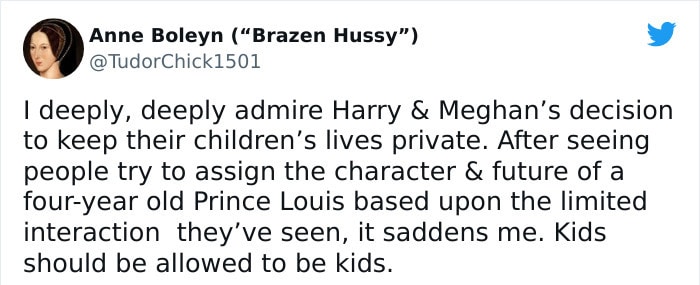
15.

16.
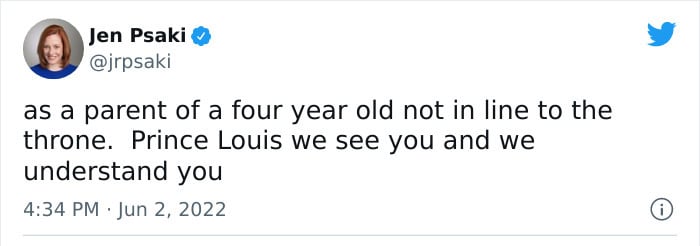
17.

Dealing with a young child can be difficult. It can make some parents wonder if their actions are making a difference, so it’s important to be aware of how they can help or hurt a child. timeouts have been shown to change behavior up to 80 percent of the time in preschool. They are the most effective for changing a specific behavior.
The key to timeouts is to make sure that you are also removing yourself from your child. The fact that your child is removed from your attention makes this strategy so effective.
When you first try timeouts, your child’s behavior might get worse as they test a new boundary, so you need to talk about the behavior after the timeout in a gentle and loving way.
18.

19.
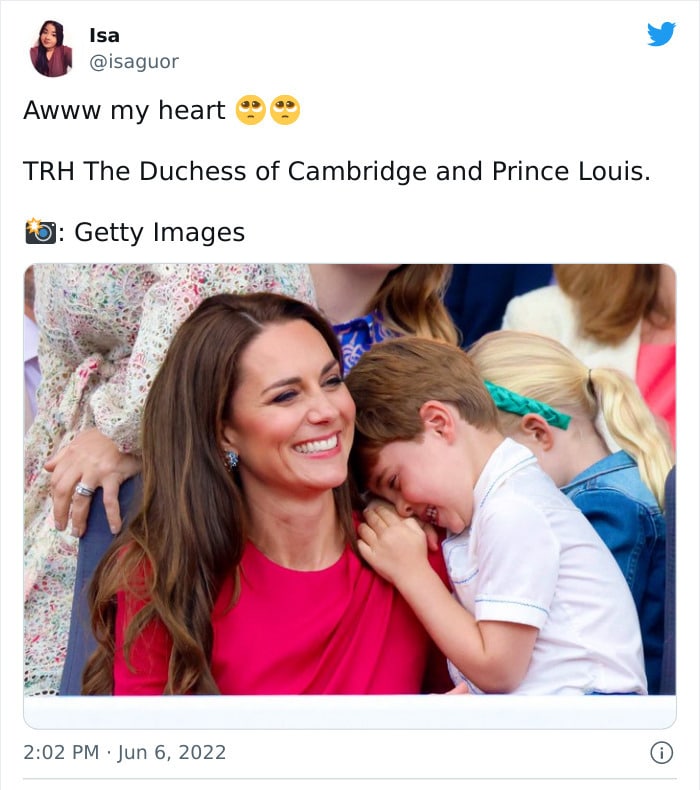
20.
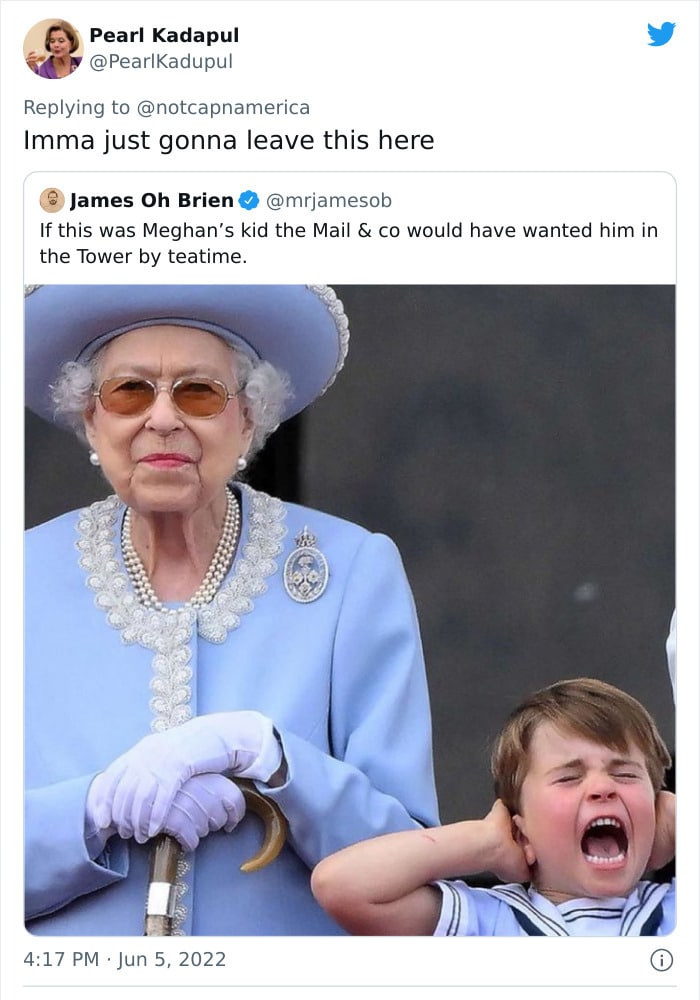
21.
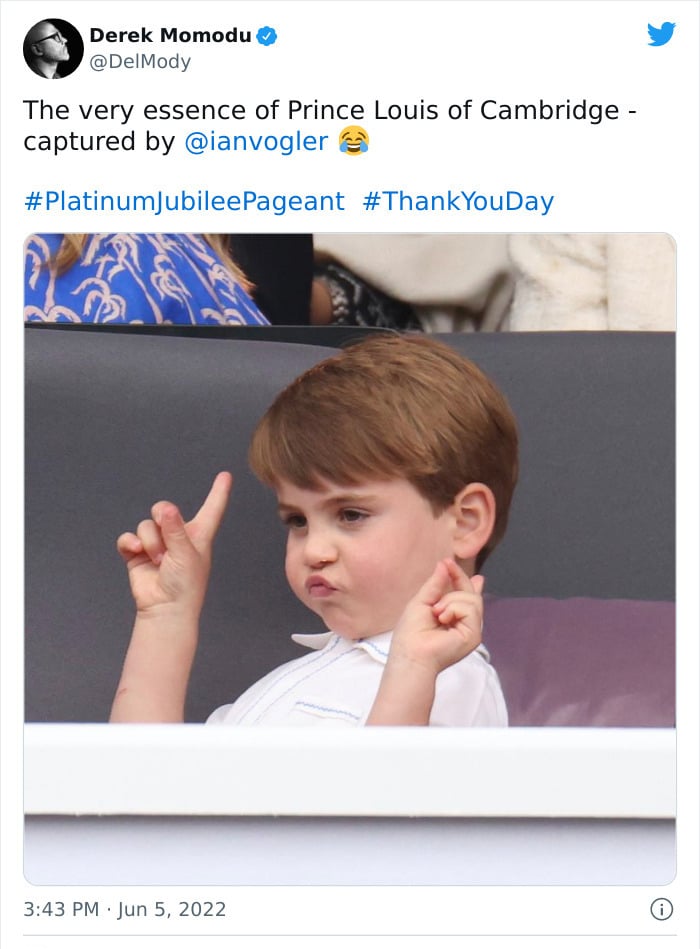
If preschoolers are constantly looking to get into trouble, it’s necessary to use verbal rebukes. They need to be few and far between. Not repeating yourself a thousand times is what this means. A child won’t take a parent seriously if they do that.
The child’s behavior, not the child, should be the focus of the reprimand. It’s fine to say, “Johnny, I don’t like that you ran away from me in the parking lot.” “Johnny, you are bad for running away from me in the parking lot” is not a bad phrase.
22.

23.
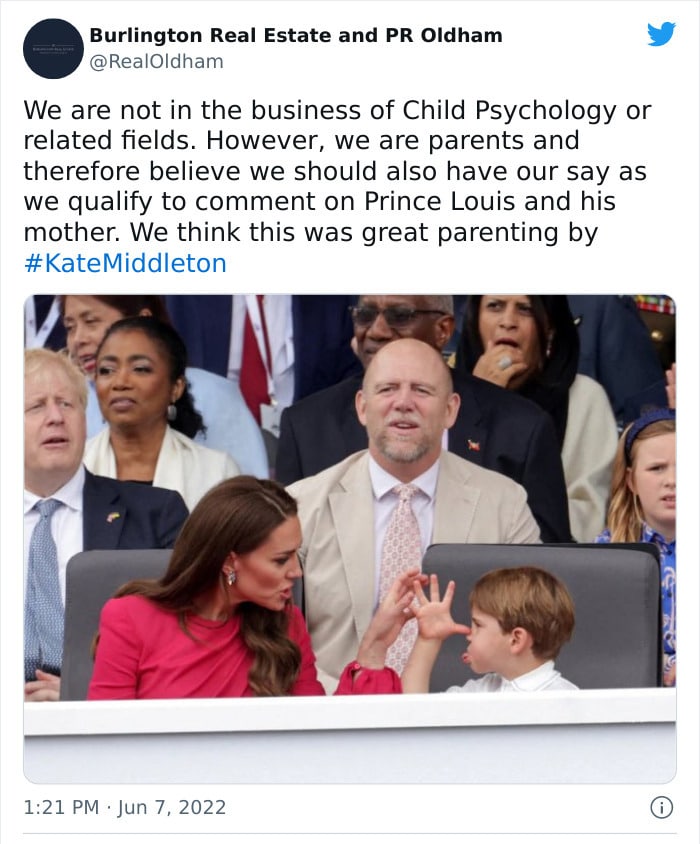
24.
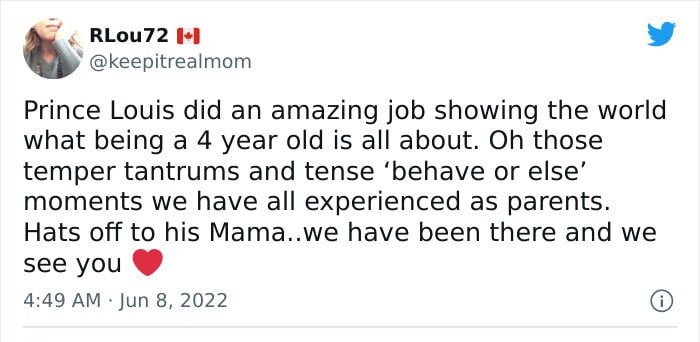
25.

Try to remember these tips when trying to manage a young child:
- A positive emotional tone is important.
- Positive behaviors that you want your child to display more of and not give them negative attention for undesirable actions are part of a positive behavior cycle.
- You should keep a schedule for waking up and activities.
- Discipline strategies can be established among caregivers.
- When appropriate, give your child choices.
4-year-olds can be difficult. This will pass like many problematic periods in parenting.
26.
Prince Louis is still fairly chill here for a 4yr old. He could be inconsolable, screaming, crying, throwing snacks, wildly kicking his feet until mom is yelling and dad carries him outside….you know just normal preschooler in the Target checkout lane things 😂😂😂 https://t.co/uvUzG8n6kY
— Alissa (Uh-LEASE-Ah) (@AlissaHenryTV) June 6, 2022
27.

28.
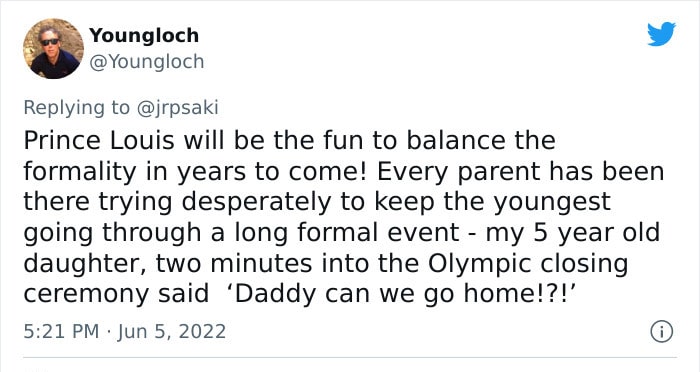
29.

30.



